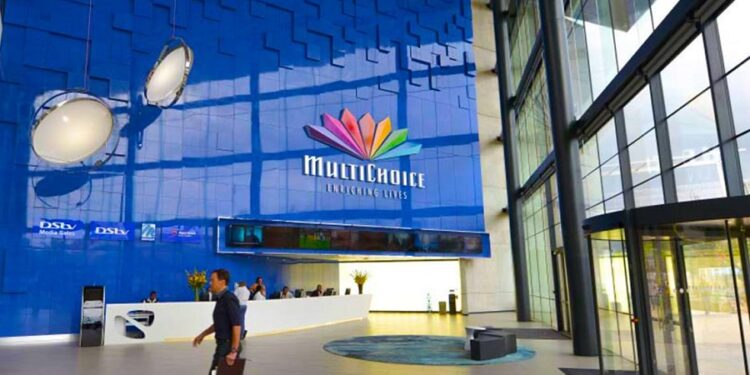South Africa’s TV giant MultiChoice posted a pretax loss of 706 million rand ($38 million) for the year ending in March, the company said Wednesday citing weak local currencies and a drop in subscribers.
Back in Nigeria, the Competition and Consumer Protection Tribunal recently fined the prominent Pay-TV operator , owners of DSTV, GOTV, ₦150 million for disputing the court’s jurisdiction, and ordered the company to provide Nigerians with a one-month free subscription to its subscribers.
The tribunal had previously blocked Multichoice from raising subscription fees without proper notice, based on a lawsuit by Barrister Festus Onifade who claimed the eight-day notice given for the price increase was inadequate.
Onifade had sued DSTV, accusing the Pay-TV of unjustly increasing subscription fees without one month’s notice to customers and leveraging on it to seek interim orders.
The court subsequently fixed July 3 for a hearing of the plaintiff’s substantive suit.
ALSO, the globa company is the subject of a takeover bid by France’s Canal+, which already holds more than 35 percent of MultiChoice’s shares.
“Volatile and weaker local currencies, power challenges in markets like South Africa, and a weak consumer environment due to rising inflation and high interest rates have created an extremely challenging environment,” MultiChoice said.
The loss followed a 921 million rand profit before taxes reported the year before.
It was compounded by a nine percent decline in subscriptions.
Business in South Africa suffered from 275 days of rolling power cuts, which discouraged potential subscribers without backup power, it said.
Group revenue was also down five percent to 56 billion rand, but the firm said that were it not for currency swings, it would have been up three percent.
Africa’s largest pay TV enterprise, said it would accelerate a cost saving programme, prioritise customer retention, leverage sports renewals and further develop local content.
Its Showmax video streaming business, which re-launched in February, was showing “encouraging early traction” with the paying subscriber base growing by 16 percent, the company said.
In April, Canal+, a subsidiary of the Vivendi group led by billionaire Vincent Bollore, made a firm offer to acquire all MultiChoice shares it does not currently own.
Upping an earlier rejected bid, it offered 125 rand per share, an amount deemed “fair and reasonable” by an independent board appointed by the South African firm.
Canal+ is present in 25 African countries through 16 subsidiaries, and has eight million subscribers, according to the French group.
Its stake in MultiChoice, Africa’s largest pay TV enterprise, has allowed it to gain a foothold in English-speaking and Portuguese-speaking nations across the continent.AFP
MultiChoice Posts Loss On Drop In Subscribers, Weak Local Currencies
South Africa’s TV giant MultiChoice posted a pretax loss of 706 million rand ($38 million) for the year ending in March, the company said Wednesday citing weak local currencies and a drop in subscribers.
Back in Nigeria, the Competition and Consumer Protection Tribunal recently fined the prominent Pay-TV operator , owners of DSTV, GOTV, ₦150 million for disputing the court’s jurisdiction, and ordered the company to provide Nigerians with a one-month free subscription to its subscribers.
The tribunal had previously blocked Multichoice from raising subscription fees without proper notice, based on a lawsuit by Barrister Festus Onifade who claimed the eight-day notice given for the price increase was inadequate.
Onifade had sued DSTV, accusing the Pay-TV of unjustly increasing subscription fees without one month’s notice to customers and leveraging on it to seek interim orders.
The court subsequently fixed July 3 for a hearing of the plaintiff’s substantive suit.
ALSO READ:Nigerian Banks Adopt Survival Strategies Amid Growing Uncertainty
ALSO, the globa company is the subject of a takeover bid by France’s Canal+, which already holds more than 35 percent of MultiChoice’s shares.
“Volatile and weaker local currencies, power challenges in markets like South Africa, and a weak consumer environment due to rising inflation and high interest rates have created an extremely challenging environment,” MultiChoice said.
The loss followed a 921 million rand profit before taxes reported the year before.
It was compounded by a nine percent decline in subscriptions.
Business in South Africa suffered from 275 days of rolling power cuts, which discouraged potential subscribers without backup power, it said.
Group revenue was also down five percent to 56 billion rand, but the firm said that were it not for currency swings, it would have been up three percent.
Africa’s largest pay TV enterprise, said it would accelerate a cost saving programme, prioritise customer retention, leverage sports renewals and further develop local content.
Its Showmax video streaming business, which re-launched in February, was showing “encouraging early traction” with the paying subscriber base growing by 16 percent, the company said.
In April, Canal+, a subsidiary of the Vivendi group led by billionaire Vincent Bollore, made a firm offer to acquire all MultiChoice shares it does not currently own.
Upping an earlier rejected bid, it offered 125 rand per share, an amount deemed “fair and reasonable” by an independent board appointed by the South African firm.
Canal+ is present in 25 African countries through 16 subsidiaries, and has eight million subscribers, according to the French group.
Its stake in MultiChoice, Africa’s largest pay TV enterprise, has allowed it to gain a foothold in English-speaking and Portuguese-speaking nations across the continent.AFP










